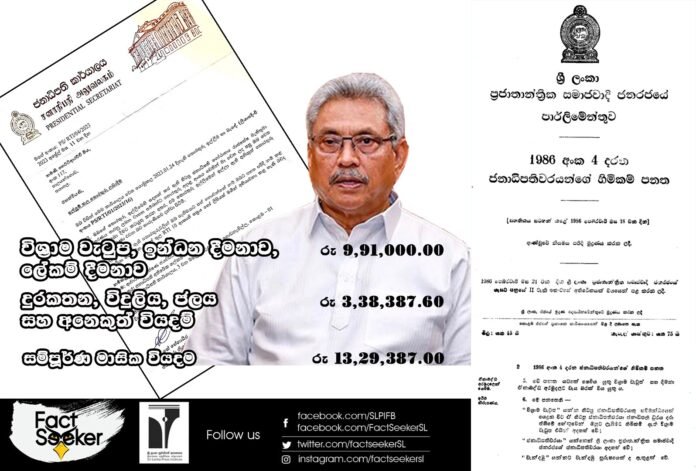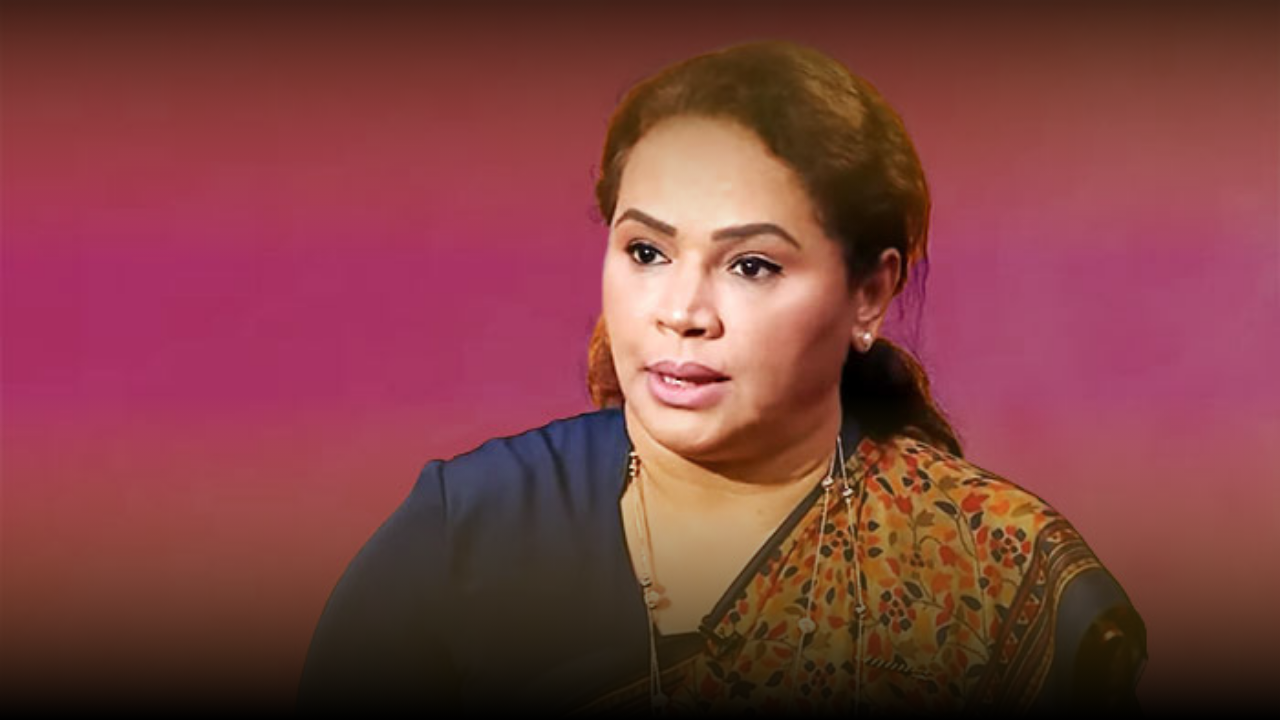Is Gotabaya eligible for a pension?

Partially factual
Since former President Gotabaya Rajapaksa resigned from the presidency before the end of his term, will Gotabaya Rajapaksa be entitled to the allowances and perquisites that a former president receives from the government, including pension? This has been discussed from time to time on social media.
by Anonymous |
September 11, 2023

Since former President Gotabaya Rajapaksa resigned from the presidency before the end of his term, will Gotabaya Rajapaksa be entitled to the allowances and perquisites that a former president receives from the government, including pension? This has been discussed from time to time on social media.
Any government official who leaves office before reaching the required age limit does not get a pension, but FactSeeker recently revealed that former President Gotabaya Rajapaksa is being paid more than Rs 1.3 million per month by the government.
A Member of Parliament does not get a pension if he has not served continuously for 5 years. If a Government servant retires before attaining the age of 55 years, he will not be entitled to a full pension. Ministerial employees also have to complete 5 years of service to be entitled to a pension.
Due to such reasons, it had been discussed on social media from time to time whether Gotabaya Rajapaksa, who stepped down from the presidency without completing his term due to the opposition of the general public, should be given a pension.
However, the President’s Entitlements Act No. 4 of 1986 of the Democratic Socialist Republic of Sri Lanka does not stipulate any specific period for a President to receive a pension. According to that Act, when a pension is granted to a former President, the former President is entitled to the pension if he had held office.
Does it say what happens to the pension if the president is somehow removed from office?
It reveals that the 1978 Constitution and the adoption of the aforementioned Act in 1986 did not take into account the possibility of an Executive President resigning from office at any given time.
However, the ruling party as well as the opposition MPs can propose amendments to the President’s Entitlements Act No. 4 of 1986 if necessary.




